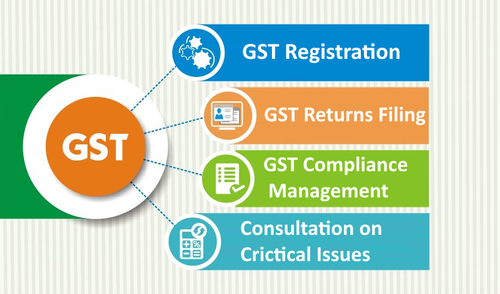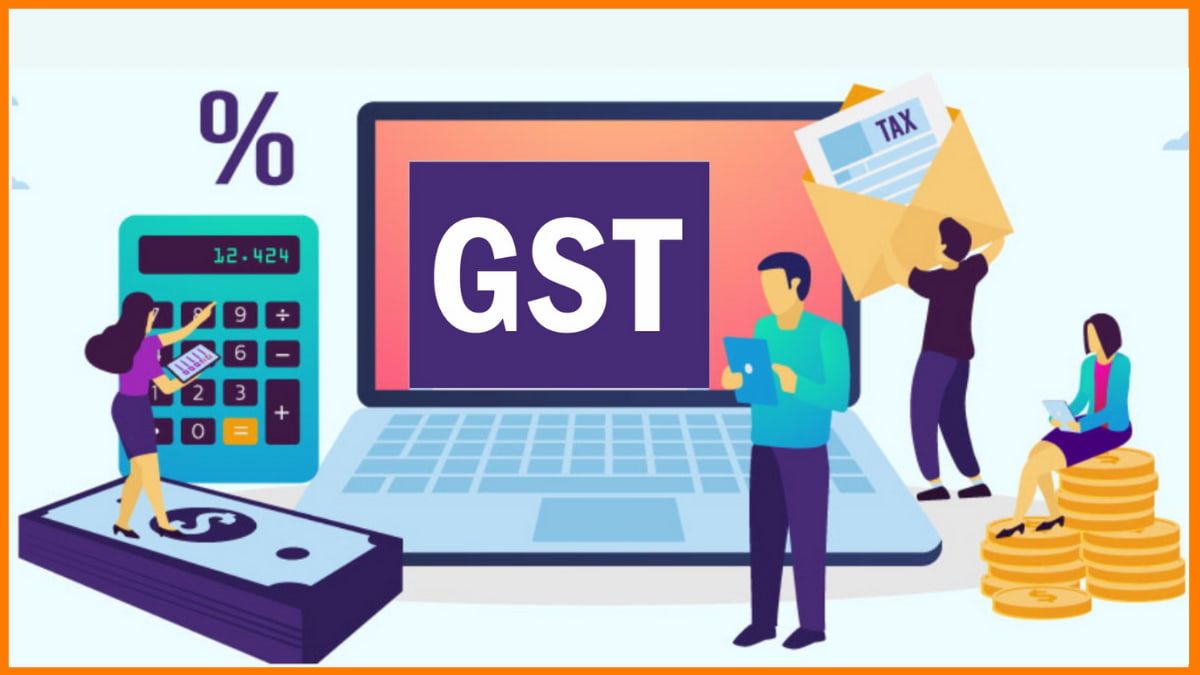Singapore GST Registration: What You Required to Know Before Applying
Singapore GST Registration: What You Required to Know Before Applying
Blog Article
Browsing the Intricacies of GST Enrollment: Specialist Tips and Best Practices for Easier Compliance
Browsing the elaborate landscape of Item and Provider Tax Obligation (GST) registration requires an eager understanding of the developing governing structure and meticulous interest to information. As businesses aim to make sure conformity and prevent challenges, expert guidance and finest practices can function as very useful compass points in this complex surface. From figuring out enrollment needs to harnessing technological tools for streamlined processes, the journey towards smoother GST compliance is nuanced and diverse. Remain tuned to discover crucial strategies and understandings that can aid businesses steer through the complexities of GST enrollment with skill and self-confidence.
Recognizing GST Registration Requirements

Along with turnover limits, organizations engaging in interstate sales or providing taxed services might likewise be required to sign up for GST, even if their turn over is below the recommended limit (Singapore GST Registration). Recognizing these requirements and thresholds is necessary to stay clear of charges and make sure smooth operations within the legal framework
Moreover, services have to collect and prepare the needed paperwork, such as evidence of identity, address, service consolidation, and checking account information, prior to starting the GST enrollment process. Falling short to supply exact information or fulfill the enrollment target dates can cause fines or various other lawful effects. Companies need to stay informed concerning the particular GST enrollment requirements relevant to their operations to preserve compliance and prevent prospective problems.
Organizing Essential Paperwork
Services beginning on the GST enrollment process must thoroughly assemble and organize the necessary documents required for submission. The key records typically needed for GST registration include evidence of organization enrollment or address, unification and identity evidence of the business owners or partners, bank account details, evidence of principal business, and permission forms. Making certain that these papers are easily available and organized can enhance the enrollment procedure and avoid delays or rejections.
To effectively arrange essential documents, businesses need to produce a centralized system for storing and categorizing the required documentation (Singapore GST Registration). Using digital storage space solutions can help maintain simple accessibility and make sure that files are securely saved. Additionally, developing a checklist of all essential papers can act as a valuable tool to track what has actually been gathered and what is still needed for submission

Leveraging Innovation for Performance
Enhancing operational performance through technological combination is paramount visit this web-site for contemporary businesses navigating the intricacies of GST registration. One of the crucial ways modern technology can help in GST registration is via the usage of automated software application remedies.
In addition, innovation can facilitate seamless interaction with tax obligation authorities. Online portals and interaction devices enable companies to send records, deal with inquiries, and obtain updates in a more efficient way. This not just expedites the registration process yet also assists in keeping reputable and clear interaction with the relevant authorities.
In addition, cloud-based storage services supply a safe and secure system for businesses to store and access their monetary information, making certain compliance with GST record-keeping requirements. By centralizing information storage and automating processes, companies can improve their overall efficiency and accuracy in GST registration treatments.
Proactive Conformity Tracking

To make sure efficient proactive conformity tracking, organizations must develop durable interior controls, conduct routine audits, and utilize automation devices for real-time monitoring of GST transactions. Routine training sessions for staff members on GST conformity demands can likewise help in developing a society of compliance within the company. Furthermore, involving with tax obligation consultants or professionals can supply beneficial insights and support on navigating intricate GST regulations.
Engaging With Specialist Professionals
Involving experienced tax professionals can considerably reinforce a business's understanding and compliance with complex GST policies. Professional professionals bring a wide range of knowledge and experience to the table, assisting organizations browse the intricacies of GST enrollment easily. By leveraging their experience, business can ensure exact filings, lessen the risk of mistakes, and remain up-to-date with the current regulatory changes.
When involving with specialist specialists, it is necessary to choose specialists with a strong record in GST compliance (Singapore GST Registration). Try to find professionals that have a deep understanding of the pertinent regulations and policies, along with experience collaborating with organizations in your industry. Effective communication is type in this partnership, so make certain to clearly specify your expectations and develop routine touchpoints to review progression and attend to any kind of issues
In addition, expert consultants can offer beneficial insights and suggestions on maximizing your tax approach, identifying Discover More potential cost-saving chances, and enhancing your get more conformity procedures. Overall, buying specialist working as a consultant services can go a lengthy means in ensuring smoother GST compliance and staying clear of pricey blunders.
Final Thought
Finally, navigating the intricacies of GST enrollment calls for a complete understanding of the requirements, organization of vital documents, leveraging technology for efficiency, positive compliance surveillance, and involvement with specialist consultants. By adhering to these ideal methods, businesses can make certain smoother conformity with GST guidelines and avoid possible charges or fines. It is necessary to stay informed, positive, and diligent in handling GST registration to maintain compliance and support monetary stability.
To make sure compliance with tax obligation regulations, services need to completely comprehend the elaborate requirements for GST registration. Item and Provider Tax (GST) is a value-added tax imposed on the majority of products and solutions in a nation, making it important for organizations to sign up for GST to stay clear of lawful consequences.Additionally, services have to collect and prepare the required documentation, such as evidence of identification, address, business consolidation, and financial institution account information, prior to launching the GST registration process. Organizations should remain educated regarding the certain GST enrollment requirements suitable to their operations to preserve compliance and stay clear of possible issues.
The vital records commonly required for GST enrollment include evidence of company registration or address, consolidation and identity evidence of the organization proprietors or partners, financial institution account details, evidence of principal place of service, and authorization kinds.
Report this page